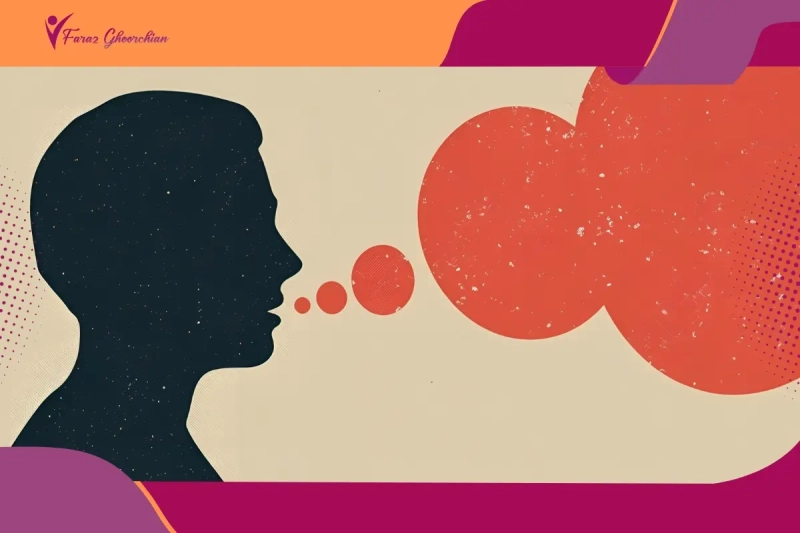What is Depression? Depression is a mood disorder that causes persistent feelings of sadness and loss of interest. This disorder affects an individual’s thinking and behavior, leading to various emotional and physical problems. Many people find it challenging to perform routine daily activities, and sometimes they feel life is not worth living.
For depression treatment to be effective, it is essential for a specialist to identify the root cause of the depression and work step-by-step with the patient to address it.
- 1. What is Depression?
-
2.
What Are the Symptoms of Depression?
- 2.1. Sadness, Tears, Emptiness, and Hopelessness
- 2.2. Anger, Irritability, and Despair
- 2.3. Loss of Interest and Pleasure
- 2.4. Sleep Disorders
- 2.5. Fatigue and Lack of Energy
- 2.6. Appetite Changes
- 2.7. Cognitive and Concentration Issues
- 2.8. Thoughts of Death and Suicide
- 2.9. Unexplained Physical Pains
- 2.10. Symptoms of Depression in Teenagers and Children
- 2.11. Postpartum Depression Symptoms
- 3. What Causes Depression?
- 4. How Is Depression Treated?
- 5. Combination of Medication and Psychotherapy
What is Depression?
Humans are complex beings with a wide range of emotions. Sometimes, sadness and despair overshadow us, making us feel very hopeless, but these feelings are transient and often disappear with the return of hope and happiness.
However, at times, these emotions are very deep and dark and do not easily fade away. Depression is a mood disorder beyond fleeting sadness; it is an unwelcome guest that overshadows an individual’s feelings, thoughts, and behaviors, turning their life into a battleground.
Scientifically defining depression, we can say it is a common and serious illness that negatively affects how we feel, think, and act in our daily activities. This disorder brings deep and persistent sadness and eliminates the interest in enjoyable activities.
Depression is typically characterized by intense feelings of hopelessness and an inability to enjoy everyday life. This disorder affects nearly all aspects of daily life and can even weaken physical health.
If you notice such symptoms in yourself or those around you, it is best to seek help from specialized psychologists in this field as soon as possible.
What Are the Symptoms of Depression?
Depression is a pervasive mood disorder that wipes the joy and vitality from an individual’s life. After understanding what depression is, it is essential to recognize the symptoms of depression correctly to find appropriate solutions.
This common disease can affect individuals at any stage of life, manifesting with a set of mental and physical symptoms that disrupt a person’s ability to enjoy and perform daily activities. Note that the symptoms of depression in women may differ slightly from those in men. The way these symptoms are expressed and the behaviors used to cope with them can vary.
Although experiencing depression once or multiple times in life is possible, immersing in this deep darkness is never an easy or bearable experience. During these exhausting periods, depression symptoms dominate the individual’s being, continuously appearing throughout the day almost every day.
To better understand the symptoms of depression, let’s explore the prominent signs:
Sadness, Tears, Emptiness, and Hopelessness
Feelings of deep sadness weigh heavily on an individual, wearing them down from within. Continuous tears and a sense of emptiness and hopelessness paint a picture of absolute darkness for the future.
Anger, Irritability, and Despair
Sudden outbursts of anger, unprovoked irritability, and despair over the smallest issues jeopardize relationships with others and increase tension and anxiety in one’s environment.
Loss of Interest and Pleasure
Activities that once brought joy and entertainment no longer hold any appeal or enjoyment for the depressed individual. Losing interest in sex, hobbies, sports, and even daily activities highlights the depth of depression. In response to the question, “Does depression reduce sexual desire?” one of the major issues couples face is indeed this matter, and to preserve family stability, seeking help from specialized psychologists is essential.
Sleep Disorders
Some individuals with depression experience insomnia and nightmarish dreams, causing significant distress. Conversely, others may resort to prolonged and uninterrupted sleep, which, rather than providing solace, exacerbates feelings of fatigue and lethargy.
Fatigue and Lack of Energy
Even the simplest tasks become exhausting efforts. The lack of energy and extreme fatigue act like an invisible chain, immobilizing the individual and preventing them from carrying out daily activities.
Appetite Changes
A loss of appetite and unintended weight loss or, conversely, an inexplicable increase in appetite and weight gain are common symptoms of depression. These appetite changes disrupt weight balance and bring about physical problems.
Cognitive and Concentration Issues
Slowed thinking, speech, and bodily movements are among the most noticeable signs of depression. The inability to concentrate, make decisions, and remember things creates challenges in performing duties and daily activities.
Thoughts of Death and Suicide
Frequent thoughts of death, suicidal ideation, and suicide attempts represent the peak of absolute darkness, putting the individual’s life at serious risk.
Unexplained Physical Pains
Unjustifiable physical pains, such as backaches and headaches, are common symptoms of depression, particularly in men. Although these symptoms also occur in some women, they are more prevalent among men.
Symptoms of Depression in Teenagers and Children
After understanding what depression is, it’s important to recognize that depression does not exempt any stage of life, casting its shadow over the colorful world of children and teenagers as well.
This common disease can strike individuals at any life stage, bringing with it a set of emotional and physical symptoms that turn the cheerful and vibrant world of children into one of sadness, despair, and isolation.
Although the signs and symptoms of depression in teenagers and children are somewhat similar to those in adults, there are subtle differences in their manifestation, making the diagnosis and treatment of this condition more complex in this age group.
Upon noticing even the smallest signs and symptoms, it is best to seek help from specialized consultants in this field.
In younger children, symptoms of depression may include sadness, irritability, clinginess to parents, worry, aches and pains, refusal to attend school, or weight loss.
However, some of the symptoms of depression in teenagers include the following:
- Depressed teenagers often experience profound sadness, hopelessness, and feelings of emptiness.
- Irritability, anger, and aggression are common symptoms of depression in teenagers.
- Depressed teenagers may experience a decline in academic performance, lack of concentration, school absenteeism, and disinterest in studies.
- There is an increased likelihood of drug and alcohol abuse among depressed teenagers.
- Depressed teenagers often feel misunderstood, lonely, and isolated from society.
- Depressed teenagers tend to lose interest in activities they once enjoyed and withdraw from social interactions.
- Feelings of worthlessness, inadequacy, and self-blame are common among teenagers with depression.
- Some depressed teenagers may harm themselves or have thoughts of suicide.
These symptoms can vary significantly from one teenager to another. Therefore, early diagnosis and treatment of depression in children and teenagers are of utmost importance.
To protect your children, it is essential to stay in contact with professional counselors and psychologists.
Postpartum Depression Symptoms
One cause of depression in women is postpartum depression, which is observed in the first 4 to 6 weeks after childbirth.
Some of the most important symptoms of postpartum depression include the mother’s low mood, crying, lack of attention to the baby, fatigue, and low energy.
The symptoms of postpartum depression are indeed extensive, and we have addressed them in detail in a dedicated article, along with solutions for their treatment.
What Causes Depression?
Depression can overshadow anyone’s life, like a dark cloud, bringing about a sense of darkness. Sometimes, even individuals who appear to have a perfect life can suffer from depression, making it hard for others to understand the causes of this condition.
Understanding the causes of depression can significantly aid in its prevention, diagnosis, and precise treatment. Professional psychologists strive to identify the root cause for effective and faster treatment.
Several factors contribute to the onset of depression, which can be categorized as follows:
Biochemical Factors
An imbalance in neurotransmitters such as serotonin, dopamine, and norepinephrine in the brain can lead to depression. Changes in the brain’s structure and function are also significant factors.
Genetic Factors
If there is a family history of depression, the likelihood of developing the condition increases.
Personality Factors
Individuals with low self-esteem, weak self-confidence, excessive guilt, and self-blame, or those who easily succumb to stress, are more susceptible to depression. Generally, people with a negative mindset are more prone to depression.
Environmental Factors
Difficult and traumatic experiences during childhood or adulthood, such as violence, neglect, abuse, loss of loved ones, divorce, or financial problems, can increase the risk of depression. Additionally, chronic stress in personal and work life can elevate the risk of depression.
It is important to note that depression is a complex disease usually not caused by a single factor but by a combination of biological, genetic, personality, and environmental factors.
To achieve better and permanent treatment, you should seek help from specialized consultants in this field to get on the path to improvement.
How Is Depression Treated?
Depression is a treatable mental disorder, with 70 to 90 percent of individuals responding positively to treatment. However, this percentage varies depending on the symptoms and causes of depression.
The first step in treating depression is an accurate diagnosis, which a mental health specialist usually makes through comprehensive diagnostic evaluations, including clinical interviews, personal, medical, and family history reviews, and physical examinations if needed.
Fortunately, there are various methods to treat depression, which can be used alone or in combination. The choice of the best treatment method depends on the severity of depression, previous treatment history, and the individual’s current condition.
Here are some common treatment approaches:
Medication
Antidepressants can help improve mood and reduce symptoms of depression by regulating the balance of chemicals in the brain. Medication should always be taken under the supervision of a specialist and at the prescribed dosage.
Psychotherapy
Various types of psychotherapy, such as cognitive-behavioral therapy (CBT) and interpersonal therapy (IPT), can help individuals with depression identify and change faulty thinking and behavior patterns and learn coping skills to manage stress and problems.
Brain Stimulation
In some cases, methods like transcranial magnetic stimulation (TMS) and deep brain stimulation (DBS) are used to treat depression. These methods involve using magnetic fields or electrical currents to stimulate specific parts of the brain.
Combination of Medication and Psychotherapy
Many individuals benefit the most from a combination of medication and psychotherapy. This comprehensive treatment method simultaneously addresses the roots of depression and its symptoms.
Lifestyle Changes
In addition to specialized treatments, positive lifestyle changes can help reduce symptoms of depression and improve the quality of life. Key changes include regular exercise, adequate and quality sleep, healthy nutrition, stress reduction, and social support.
What is Depression? Depression, like a dark cloud, covers the sun of vitality and darkens an individual’s life. This common illness, which can occur at any stage of life, impacts both emotional and physical well-being, disrupting one’s ability to enjoy life and perform daily activities.
The diagnosis and treatment of depression should be conducted by mental health professionals through comprehensive interviews, personal and medical history reviews, and physical examinations. By collaborating with professional psychologists, you can overcome this disorder more quickly using combined treatment methods.
Frequently Asked Questions
When should I see a doctor for treatment?
If you feel depressed, consult a mental health specialist as soon as possible.
What are the causes of depression?
Depression results from a combination of biological, genetic, personality, and environmental factors.
Who can be affected by depression?
Depression can occur at any stage of life and affect anyone.
How long does depression treatment take?
The duration of treatment depends on the severity of the depression and the individual’s response to the treatment.
How can I help someone who is depressed?
Provide emotional support, encourage them to seek treatment, and assist with daily tasks to help individuals suffering from depression.
















